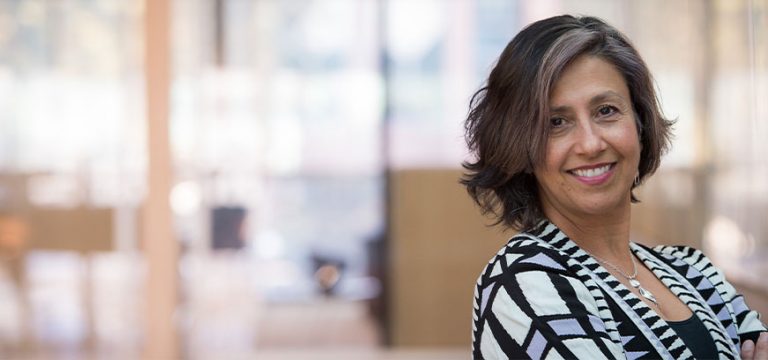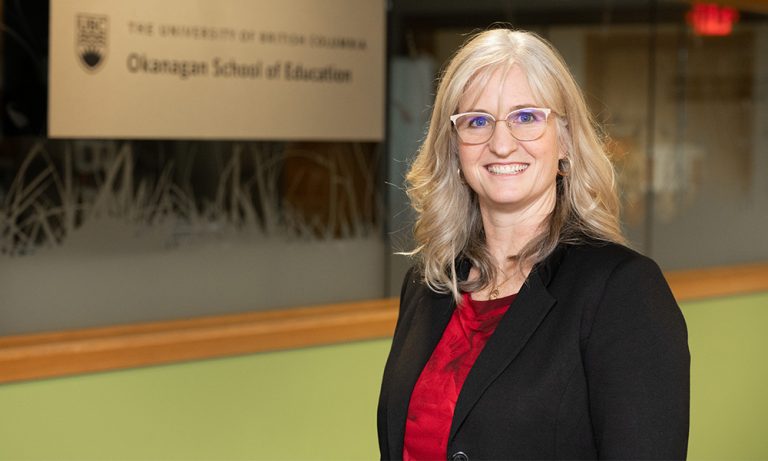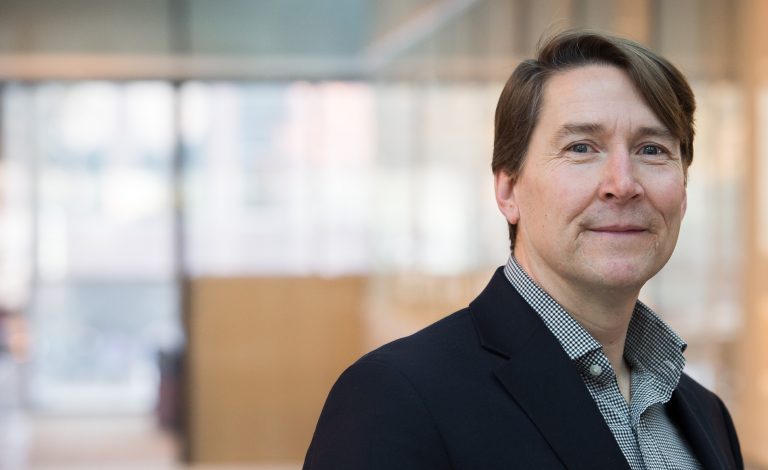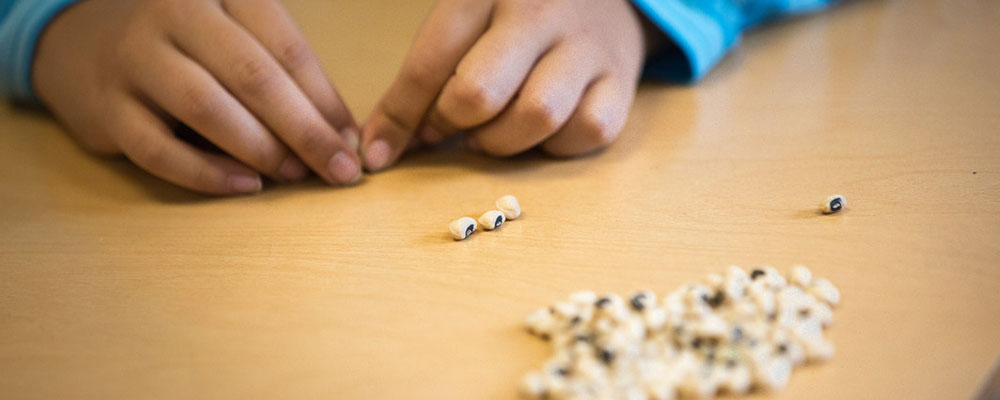Graduate Student Spotlight: Mellissa Carroll
For the first time in her 15 years of teaching secondary school, Mellissa Carroll has been instructing her students online.
“The only experience I had was working with the Google for Education platform, which essentially is a cloud-based location for classroom resources and communication,” says Carroll. “I was well versed in the top web apps used in secondary humanities and knew I was in a good position for the shift to online. That said, the way I’ve incorporated technology into my teaching up until COVID-19, has never been a replacement for the physical classroom.”
She can also empathize with some of the challenges her students may have been facing. In January 2020, she began her first online graduate course, and in mid-March, the last few classes of her in-person course had transitioned to online due to COVID-19.
“I am a social person and I like to bounce ideas off others, learn, and laugh with others. Transitioning to online in January was difficult for me. I felt more alone in my learning and didn’t experience the energy of others,” says Carroll. “I chose the UBCO Masters of Education program because I wanted to complete my degree in a (primarily) face to face program.”
***
Carroll began her Master of Education program with the intention of furthering exploring technology. Her interest in digital education steamed from a return to work after her second child.
“I realized that my practice had become stagnant and that what used to work to engage students and lead to success didn’t seem to have the same effect,” says Carroll. “My practice had to change. What was more, devices and wi-fi accessibility were finally allowing for technology to be incorporated reliably into the classroom.”
In her course Policy and Education (EADM 554), students take a close look at the ethical, political, and education principles that inform education policy and practice. A key aim of the course is to give students an opportunity to take a rigorous, research-intensive focus on a policy or related issue that interests them, either in their own research or their professional practice. Carroll decided to explore online educational technologies and their effect on a democratic education for her final research paper.
“I was initially excited about the potential of online educational resources,” says Carroll. “But the further down the rabbit hole I went, the more concerns I had about the educational ‘costs’ of these models. I couldn’t help but wonder whether all of this was good for my students.”
In her paper, she notes how educational technologies can promote a democratic education as they “improve access to education, create innovative social networks for learning, and deconstruct traditional structures of education.” These advantages can be seen through the “Great Equalizer Narrative,” a concept that essentially states that educational technologies alleviate the disparities between socioeconomic classes; and the “Disrupter Narrative,” where the belief is that leveraging technology can create an open model of education that could expand access to higher education.
There are also a number of barriers from even accessing digital education such as internet availability, devices, electricity and even student motivation to self-study.
Carroll mentions educational technology can have ‘hidden costs.’ This perspective is shaped as technology companies are often lobbying government and influencing school boards. In fact, there is generally millions of dollars at play as these companies attempt to guide policy with the focus of driving sales rather than student experience.
Even if companies are providing tools inexpensively to educators and students, there can still be a cost. Though it might not be monetary, it may mean a bombardment of advertising or access to student data.
“There is often excitement about the latest tech tool’s ability to add creativity to learning or assist overwhelmed teachers in organizing resources and assessment, but there has yet to be a technological solution for creating equity in education across regions, nations, or the globe,” states Carroll in her paper. “Educators need to temper their excitement with technology with a thoughtful grounding of intention.”
***
While Carroll notes that the pandemic has made online learning more necessary than before, she’s now seeing some of the opportunities, challenges and barriers as described in her research first-hand.
“Some students are really struggling with loneliness, and as a parent, I’m seeing my youngest child regress somewhat in his social skills,” says Carroll. “A number of students require additional support or simply the ability to raise their hand and ask a quick question. Online learning will be a struggle for these students. However, I have also witnessed one of my students, who rarely shares or contributes at school, find his voice and participate online more than he has all year. Other students are loving the freedom of working at their own pace. My thoughts are that some students will experience success in the remote learning environment, but many others will struggle socially, emotionally, or academically.”
About EADM 554: Policy and Education
Dr. Christopher Martin’s course has students explore how educational policy and practice in free and open societies should respond to dissenting views on education and its key aims. Topics include the role of the state and the free market in education, the nature and limits of teacher freedom of expression, and the aims of higher education. Students are encouraged to develop their own line of thinking on a controversial issue in education policy or practice, assess the merits of different points of view on that controversy, and present a clear and reasoned position of their own.
Along with Carroll’s paper on Debunking Digital Education, students’ projects explored the state provision of adult education, the tension between effective teaching and teacher autonomy, the aims and purposes of history education, justifying a national, equality-promoting curriculum for Pakistan, and a defense of a greater educational role for student support services in a university.
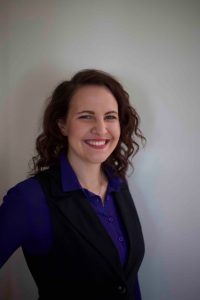 Congratulations to the Madeline Korfman Memorial Scholarship recipient Laura Martin!
Congratulations to the Madeline Korfman Memorial Scholarship recipient Laura Martin!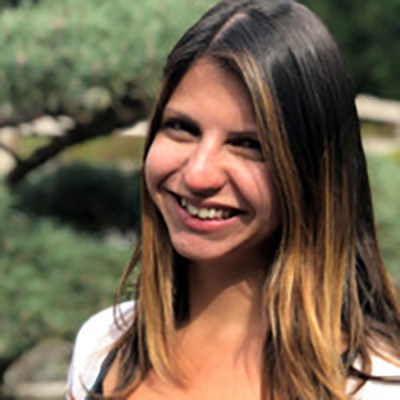
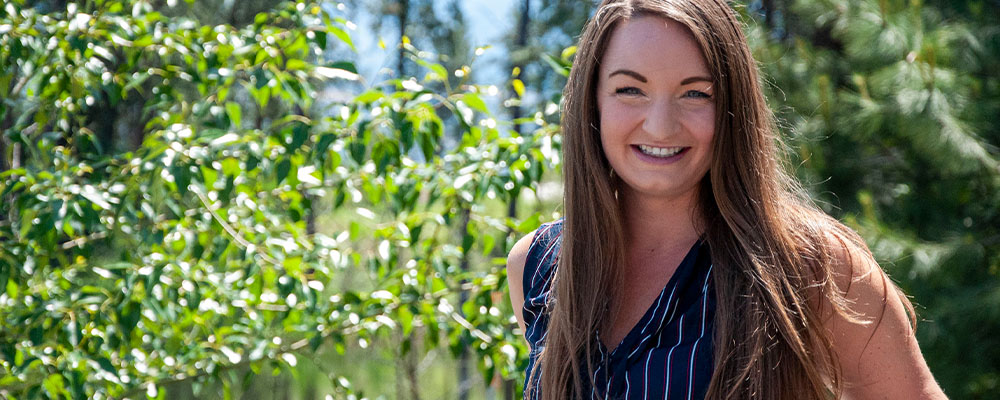 Congratulations to the Madeline Korfman Memorial Scholarship recipient, Makenzie Houston!
Congratulations to the Madeline Korfman Memorial Scholarship recipient, Makenzie Houston!